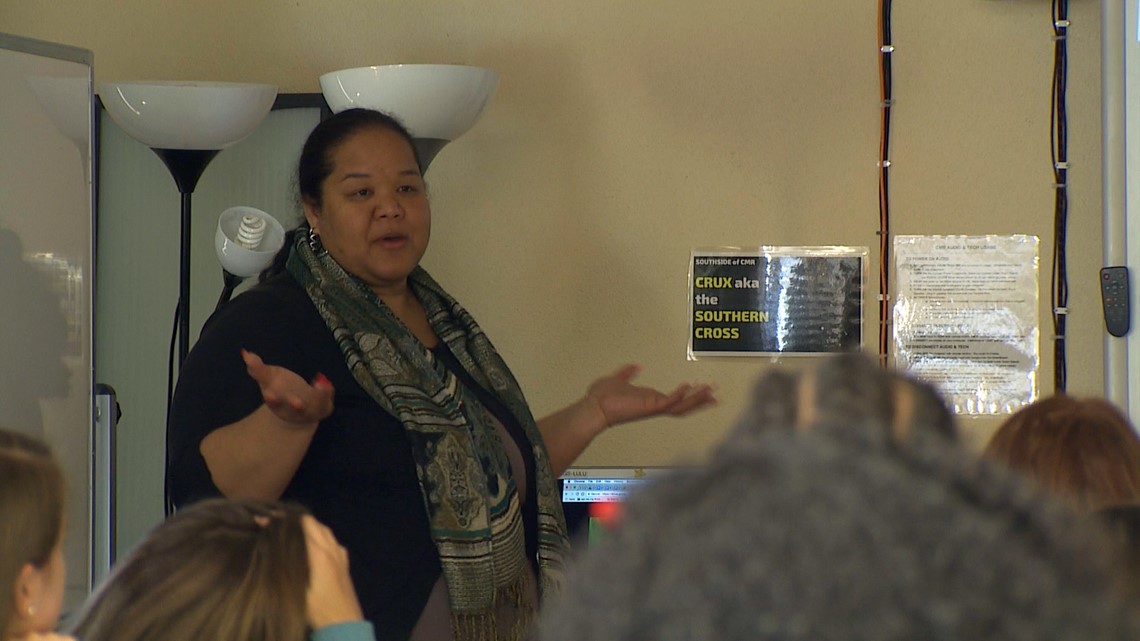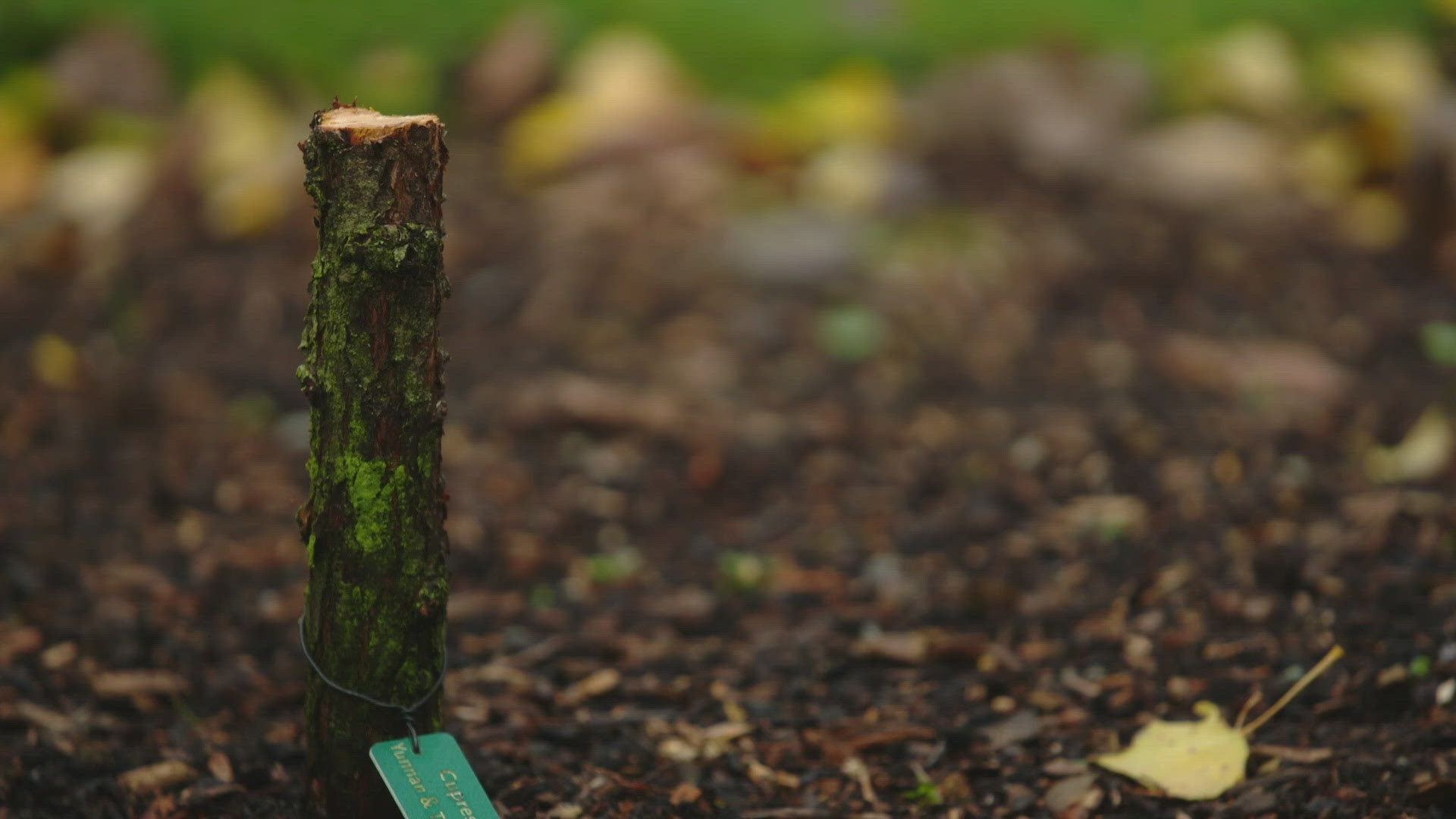This story is part of an on-going series chronicling the rising cost of living in Seattle and its impact on middle class families. Email pricedout@king5.com to share your story with KING 5.
Luzviminda Uzuri Carpenter is a middle school teacher, an LGBTQ activist and a low-power FM network radio host who shares the stories of people in Seattle who are marginalized. She now puts herself in that category as her Central District neighborhood becomes increasingly unaffordable and unrecognizable.
“The property that’s going up doesn’t seem like it’s affordable,” Carpenter said of the development all around her. “The prices don’t make sense at all.”
Carpenter has lived in Seattle for 13 years.
She has managed to stay in the Central District, because she rents from her employer, Seattle Girls School, at a discounted rate.
“Maybe it’s not the money so much as the culture. It’s not diverse anymore,” she lamented. “I used to see black kids, and I used to see a lot of immigrants.”


Carpenter said she has noticed fewer African-American cultural centers in the historically black Central District where neighbors can build community.
She said local restaurants serving Ethiopian and Soul Food are closing, so there are fewer gathering places.
She also pointed to the closure of the Red Apple grocery store, which carried affordable groceries and hard-to-find specialty items. It was bought by Paul Allen’s real estate development company, Vulcan.
“I don’t feel unsafe,” she said of her long-time neighborhood. “I just feel unwelcomed. Like I don’t belong. It feels so different."


She said she’s confused about Seattle’s values. As a teacher, Carpenter said she will never earn enough money to keep up with the rising cost of living in Seattle, but wondered what that means for younger generations.
“It doesn’t seem like Seattle’s made for people like me,” she said. “It seems like we have to be in the tech business. We have STEM schools to support that initiative, but we are the people that are preparing the next generation, and we can’t afford to even live here.”
But Carpenter said she’s committed to staying in Seattle for the long haul, and she vowed to continue to build community in the Central District even as it slips away.


“I do love Seattle,” Carpenter said. “I feel I’ve fought for Seattle. Do I know everything about Seattle? No. But the people that I’ve fought for and the people that I love, I have fought my hardest for.”
RELATED:



